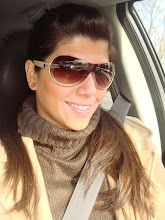Saturday, February 21, 2009
**Value Added**
Now the teachers can use additional resources such as videos, music, softwares, pictures, etc in order to teach their students in a "fun" way.
Not only the students will be in contact with what their teachers have been preparing, but they will also make their own projects and be in contact with their peers' too.
The use of the "universal design for learning" will create an individualization instruction, where each student will have their own projects that will be made according to their point of view and interests. They can also be assessed by their teachers according to the goals and materials of the project.
Students will also proceed from what they already know to reach their objectives with the use of the additional resources.
I don't think in the future teachers will be raplaced by computers, but together they can be a great "team" in order to provide students better quality in education!
Wednesday, February 18, 2009
Inquiry-based learning

The first thing that crossed my mind while I was reading the article was :"Do it yourself, try it, get involved with it".
It doesn't matter about what we are talking about...once we try to do ourselves, we learn much more about it.
I am seeking my MA in bilingual ed., and as an English teacher, and even an ELL myself, I can say that once we leave the books and anotations aside for a while and we start communicating things go further.
Instead of reading and repeating the numbers after the teacher, let's try to use it in real life, let's pretend we have a supermarket in the class and try to buy "five" apples for "two" dollars. Let's learn about the animals by going to the zoo, to the farm, let's bring our stuffed animals from home, and let's see how they are in real life. Let's have a cooking class by mixing the flour, with the sugar, with the eggs, with the cocoa powder, to see and understand how a cake is baked.
To give answers to the students is easy, but to make them get to their own conclusions and understand the process of how things are made or how they happened is how they really learn. To learn from their own mistakes is one of the best ways during the learning process.
I come from a "traditional" school, where teachers would talk and I would write down and read. I was pretty much memorizing and learning for the tests. When I decided to become a teacher, I started working on a "constructivist" school, where students would cook, plant, construct, label materials and places inside the school by themselves to find the best way to learn what is what, and where is where. I kept thinking to myself everyday, how I would have learned much more by going to a school like that....



